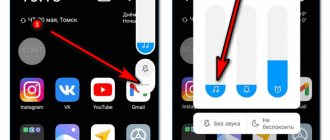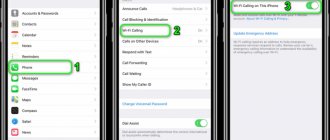Buying a laptop, smartphone or any other gadget is always a joyful event accompanied by positive emotions. New devices work quickly and efficiently. One of the reasons that can affect this is viruses. In this article we will look at the question of whether an antivirus is needed for Android or not.
- LiveJournal
- Blogger
According to Google, the number of Android viruses has halved over the past year.
How can viruses get into devices?
Before figuring out whether an antivirus is needed for Android or not, let’s look at the main reasons and ways for malware to penetrate the device.
All modern devices can connect to the Internet. And, as you know, it can bring not only benefit, but also harm. The World Wide Web has long become a place where it is dangerous to enter without an antivirus program. At least, this has always been the case for devices running Windows OS, since most viruses were created specifically for this platform. In this case, antivirus programs are needed to perform the following functions:
- “curing” the system and removing malware;
- blocking the possibility of shell infection through the browser;
- prohibition from installing and opening unverified programs that can harm the device.
What's the deal with Android? It cannot be denied that any operating system may contain malware that can affect both the performance of the gadget and deceive the user, luring out money or confidential information.
But, with a shell from Google you can feel more secure than from Microsoft. This is due to the fact that the majority of applications are downloaded from a reliable source - the Play Store. This virtual store is constantly checked by the developers for the presence of viruses and other unwanted programs. If they are found, they are immediately blocked and deleted.
To prevent users of smartphones or other devices from harming themselves, the default settings of gadgets prohibit the ability to install applications from unverified sources, that is, outside the Play Store. You can be 99% sure that by installing applications from this store, you will not be able to infect your smartphone or tablet.
But, if you decide to download an application from another source, its installation may cause irreparable harm to your device.
Is Android susceptible to viruses?
The Android system, like any other OS, was created by ordinary people who have the right to make mistakes. Constant updates and improvements to vulnerabilities indicate quite serious problems with Android devices licensed by Google. And if we take into account the fact that Chinese exports clearly disregard US legislation, then every third Russian who bought a phone in the Russian Federation can be counted among the potential victims of cyber fraudsters. Virus program specialists are increasingly seeing cases where a pre-installed (factory) operating system already contains a “dropper” virus in the source code, allowing data to be stealthily stolen and sent to the server when accessing the network.
Android developers, despite having their own anti-virus program for applications from the market (Play Protect), cannot give a 100% guarantee that downloads from the Play Market will be “clean”. Hackers develop such viruses that when scanning, the Google system does not see a threat (suspicious activity) in the source code. And the application is approved, becoming available to millions of users. And this is not the main problem of Android developers who have an open security policy.
All versions of Android are susceptible to infection by viruses, especially the latest, “raw” firmware. And how quickly a smartphone is attacked by malware depends largely on the owner himself. Any activity on the network that follows a virus attack causes the system to become infected and banking and other personal data to be stolen. Before clicking on a link from a pop-up window or sending a reply SMS to an unfamiliar number, you should find out information about the original source.
Also, do not forget that viruses are transmitted through memory cards and USB flash drives. Even the simplest phone with a web connection can leave the owner without funds in the linked accounts.
Russia is consistently among the TOP 5 countries in terms of the number of infected Android devices, and this does not take into account daily attacks that are successfully repelled by antiviruses. Compared to OS iOS, Andoid is seriously inferior in terms of security, because its open source code causes the development of viruses, Trojans, worms, and various malware and scareware. All the attackers need to do is request permission during installation, and then the seemingly harmless application will collect information about the user and use it against him.
The main ways of spreading viruses for gadgets on Android OS
An increasing number of people are beginning to actively use tablets or smartphones to perform tasks that were previously carried out exclusively on personal computers and laptops.
If 5-10 years ago hackers focused exclusively on Windows, now they are trying to penetrate devices running Android. But, as mentioned earlier, a malicious file cannot easily penetrate a phone or other gadget.
Since the Google Play Market is a safe place, you can only infect your device by installing programs from other places and disabling some settings. The main places to expect trouble are:
- Web pages opened in a browser.
- Third party file exchangers.
- Transferring unverified files via a wireless network or physical storage device (flash drive).
Even if you managed to introduce a virus to your device, it is not a fact that it will begin to successfully perform its “dirty” tasks. To do this, you must install the infected program and run it.
When the likelihood of infection is minimal
Before answering this question, it is necessary to understand the specifics of the virus program. A virus is the same program or application with code, in the body of which a “stuffing” is hidden. Depending on the level of hackers, malicious code can disguise itself, for example, for the purposes of data collection and surveillance, even in the absence of a SIM card. In the most common cases, the virus either imitates a real program (“malware” with a payload), or immediately reveals itself when installing or downloading a URL link (“dummy”). In any of the situations, the penetration of the “code” requires the Internet (link, installation of a program) or a connection with another infected device. Public Wi-Fi is also susceptible to cyber attacks and is the most insecure connection type. The user risks, at a minimum, handing over his personal data to attackers.
Another question is: do all antiviruses protect against attacks or can they not be used at all if you take precautions? There is no definite answer on this topic: everything is individual and depends on the specific phone model and the purposes for which it is usually used.
If a person actively uses a Google account, which is one of the conditions for downloading applications from Google Play, then he most likely has a popular antivirus installed from an official source. It provides online protection and allows you to operate firewall settings, anti-spyware and other utilities. In addition, the built-in browser, with Play Protection enabled, provides safe online search and blocking of phishing links. In this case, the system is protected by a minimum from Google and an anti-virus program from the official developer.
The risks of infection increase with:
- Downloading third-party applications not from the Play Market. Files in APK format are downloaded from popular resources, reflecting the developer, a successful virus scan, but their code is infected. Without first scanning with an antivirus, unpacking the file will result in activation of the malicious program;
- Downloading applications with poor ratings and reviews from the Play Market itself. Google approves applications from any developers and programmers due to the minimum requirements. If the attacker disguises the virus code well, Play Protection will not work. Even such a harmless application as a flashlight with access only to the camera is capable of collecting data about the user for the purpose of selling to entrepreneurs setting up a targeted advertising campaign;
- Using antiviruses from little-known companies. Typically, the program is emulated as a powerful utility or booster with a security mode and creates the effect of working. Meanwhile, it collects any data about a person in real time (microphone, camera, contacts, calls, location, bank details and mail) for the purpose of extortion or resale, rarely just for fun;
- Frequent clicking on links of dubious origin (from SMS, pop-up “alerts”, redirects and banners; downloading music and films, especially on pirated sites and resources for adult audiences; visiting “cheap” sites stuffed with advertising;
- Granting the download ROOT rights and permission from the Device Administrator. In this case, the phone either quickly fails due to an increase in the load on Android (the virus penetrates the system algorithms on its servers and mines cryptocurrency) or access to accounts is lost, followed by theft and deletion of data.
The minimum risk of infection is for devices with factory-licensed software that are used for their main purpose. To avoid catching a virus online, you should use only trusted, reputable sites and avoid downloading and registering that require clicking on dubious links. The Play Market is also not recommended as a reliable source due to the presence of gaps and critical vulnerabilities in the Android system. For better protection, you can install crypto protection and a firewall, which will simultaneously block traffic and encrypt data on the phone itself.
Do you need an antivirus?
On the one hand, Google practically reduces to zero all attempts by scammers to harm devices and introduce various types of virus programs onto them. On the other hand, careless actions of users and new tricks of hackers can lead to infection of gadgets.
An antivirus program for Android is a program designed to identify and clean the phone’s memory from applications whose operation is questionable and suspicious. However, treatment programs use quite a lot of device resources to operate, which can affect performance in budget and low-cost models.
If you have a top model tablet or phone, then for the reliability and safety of confidential information, it makes sense to additionally protect Android from viruses by installing an antivirus.
How to install a treatment program?
If you find it necessary to download and install an antivirus on Android, then you need to look for it exclusively in the Play Market. Each device running on this OS has a similar icon (shortcut):
- LiveJournal
- Blogger
The Google Play Market online store contains a huge database of applications, including antiviruses.
By clicking on it, you will enter the application store from Google. Next, to install an antivirus on an Android phone, enter the desired program in the search field. For example, we find free Avast:
- LiveJournal
- Blogger
Search for an application by name
Select Mobile Security & Antivirus and click the “Install” button. After this, the program will download and install itself. Next, you can check your Android phone for viruses:
- Let's go to the application.
- Open the antivirus scanner.
- Click on the big green “Scan” button.
- LiveJournal
- Blogger
Antivirus for Android Avast
In the same window, you can configure the settings for automatically scanning your phone for malware.
Editor's Choice
ESET NOD32 Mobile Security
ESET NOD32 Mobile Security.
Photo: market.yandex.ru ESET NOD32 is a security program based on machine learning that recognizes and eliminates 100% of modern viruses and reflects 99.9% of threats in real time. It also has a home network scan feature that analyzes the security level and identifies possible vulnerabilities.
If the phone is lost or stolen, the owner can manage it through a personal account on the ESET website. This feature allows you to remotely erase sensitive data, lock your device, locate it for quick recovery, and get a photo from the camera.
A special option will help you recognize the face of the thief or examine the surrounding environment. The rest of the features are standard: password protection of applications, automatic scanning on a schedule, and anti-phishing to block fake sites.
Google Play
Main characteristics
| Language | Russian |
| Media type | activation card |
| Android version | 4.1 and higher |
Advantages and disadvantages
Reliable protection against all types of viruses, checking home network vulnerabilities, minimal system load and low power consumption
There is no firewall to filter traffic, setting up some functions may be difficult at first
show more
Rating of antiviruses for Android devices
In order to decide which antivirus to install on your phone, we have compiled a rating of healing applications, which is based on popularity, that is, the number of downloads from the store.
There are quite a lot of different programs, including utilities from giants that develop security systems for computers. So, in the Play Market you can find Kaspersky antivirus for Android. It was not included in our rating because it has low popularity and also has many negative user reviews.
AVG Antivirus Free
The antivirus has a stylish design and a standard set of functions:
- malware scanner and monitor;
- block of calls, SMS, applications;
- system backup;
- additional functions necessary in case of device theft.
Thanks to the simplicity of the interface, AVG will help you easily remove the Trojan from Android without any special programming skills or knowledge. The special “Anti-Theft” function will allow you to automatically take a photo of the fraudster when you try to unlock your phone. Considering more than 100 million downloads, we can say with confidence that this is a good antivirus for Android.
Avast Mobile Security & Antivirus
This program has a fairly wide range of functions:
- scanner and monitor;
- monitoring network traffic and remote connections;
- web screen;
- Anti-Thief (anti-theft);
- application activity control;
- security advisor;
- working with contacts.
In addition, Avast is equipped with additional capabilities that will have to be downloaded separately. Due to this, it takes up a lot of resources on the device, but helps provide comprehensive protection. This antivirus for a tablet or any other gadget running on Android OS will help not only remove the virus from your phone, but also protect it from hacking or theft.











